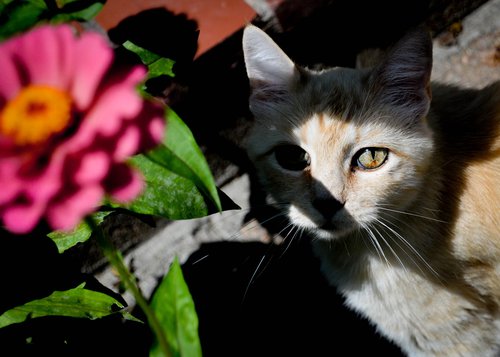Awe, amazement and wonder are a few of the reactions humans have to a solar eclipse. The extremely rare occasion of being in the path of totality—where the moon’s disk completely blocks the sun for a few short moments—captivates audiences and inspires a sense of excitement.
While the phenomenon of a total solar eclipse may be fascinating to humans, it can be downright confusing for wild animals and pets who depend on the sun to know what time of day it is. Austin Garner, a biology professor in the College of Arts and Sciences (A&S), studies animal behaviors in his research on the biomechanics of animal movement and attachment. He recently sat down with A&S Communications to talk about what animals experience in the leadup and aftermath of a total solar eclipse.



